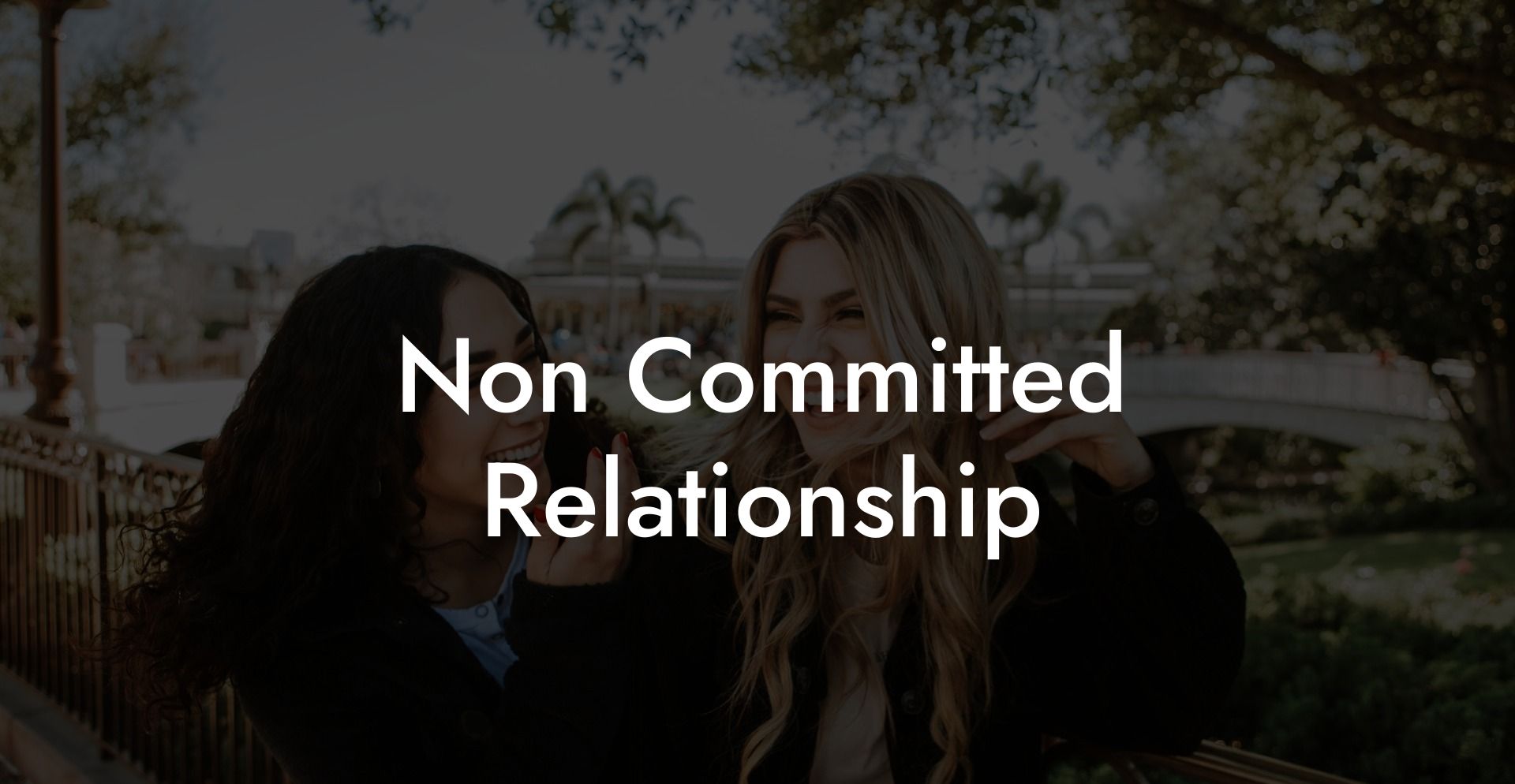Having a relationship without being committed to a long-term future,often referred to as a "non-committed relationship," can be a puzzling concept for some. With society's emphasis on finding a lifelong partner, why would anyone choose not to be fully committed? This article will delve into the reasons why people might seek non-committed relationships, the potential benefits and challenges, and how to navigate these unique arrangements.
Non Committed Relationship Table of Contents
Why do people choose non-committed relationships?
Benefits of non-committed relationships
Why do people choose non-committed relationships?
There are various reasons people may choose to engage in non-committed relationships, such as:
- Individuals focusing on personal growth and development
- Wanting the connection and intimacy without the pressure of long-term commitment
- Focusing on career or other goals that may require frequent relocation or instability
- Seeking to gain a variety of dating and relationship experiences
- Recovering from a past relationship and not yet emotionally ready for commitment
Benefits of non-committed relationships
While some individuals may strive for long-term, committed relationships, others find value in more open arrangements. Some benefits of non-committed relationships include:
- Freedom and flexibility to explore personal interests and goals
- Exploration of one's identity and relationship preferences with multiple partners
- Reduced pressure and expectation compared to traditional committed relationships
- Opportunity for both individuals to grow and evolve in their own unique directions
Challenges of non-commmitted relationships
Of course, the path of non-commitment comes with its own set of challenges:
- Potential for increased jealousy or insecurity
- Communication difficulties, particularly around boundaries and expectations
- Higher risk of misaligned expectations and hurt feelings
- Difficulty explaining the relationship to friends, family, or potential partners
- Lack of societal support and understanding for non-traditional relationships
Navigating a non-committed relationship
Entering into a non-committed relationship requires a certain level of self-awareness, communication, and boundary setting. Here are some tips to help ensure success:
- Engage in open and honest communication about expectations, desires, and boundaries
- Respect each other's autonomy and individual journeys
- Establish clear and consistent communication and check-ins to maintain a healthy dynamic
- Keep in mind that each non-committed relationship can take a different form, and what works for one couple may not work for another
- Remember that while emotions can and do shift, the foundation of trust and respect must remain strong
Non Committed Relationship Example:
Jane and John have been dating casually for about six months. While they both care deeply for one another, they realize that they are not quite in the same place in their lives, and long-term commitment is not viable for either of them. Jane is focused on her career and considering a move across the country in the coming year, while John is still exploring his options and learning what he wants in both his personal and professional life.
Instead of ending the relationship entirely or trying to force a committed bond, they both agree that having a non-committed relationship is the best approach. They continue to date, share experiences, and grow both individually and together, all while understanding that they are under no obligation to stay together indefinitely. When Jane eventually moves away, she and John decide to separate amicably and grow from their experiences together, knowing that their time spent in a non-committed relationship played a pivotal role in their lives.
Non-committed relationships may not be for everyone, but for some, they can provide valuable experiences and opportunities for growth. If you resonate with the idea of exploring these unique arrangements, the journey will require strong communication and understanding of one's self and partner. We hope this article has provided a useful starting point for those considering a non-committed relationship. Please feel free to share this article and explore other guides on The Monogamy Experiment for additional insights and resources.













